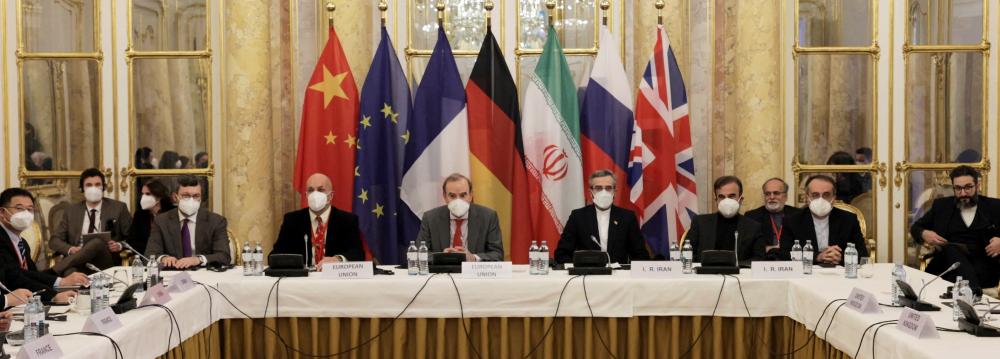The United States’ refusal to provide guarantees for the execution of agreements is the reason behind the current pause in talks to revive the 2015 nuclear deal, known as the Joint Comprehensive Plan of Action, a lawmaker said.
“Today the outcome of negotiations depends on the West’s decision-making and the ball is in their court,” Mahmoud Abbaszadeh, spokesman for the Majlis National Security and Foreign Policy Commission, told Tasnim News Agency.
He added that the Americans must give assurance that they would practically lift sanctions and adhere to the agreements reached in Vienna permanently.
Talks have been underway in the Austrian capital Vienna since last April to restore the JCPOA, which offered sanctions relief to Iran in return to curbs on its nuclear program.
The deal has been unravelling since the United States pulled out in 2018 and reimposed sweeping sanctions on Tehran, prompting its leaders to eventually scale down on nuclear commitments.
Despite great progress over a year of discussions, the Vienna talks have been paused for more than a month over a few remaining issues.
Iran demands a complete and verifiable removal of sanctions before reversing its nuclear steps, plus guarantees that no future president would violate the deal again.
Other Options
Abbaszadeh said Iran’s considerable development in the nuclear industry over the past few years, particularly in building new-generation centrifuges, has boosted the Iranian team’s bargaining power.
The parliamentary law, dubbed strategic action plan to remove sanctions, which required further steps beyond JCPOA limits, also broke deadlocks in the negotiations, according to the lawmaker.
“After what happened in the country’s nuclear industry, the West took the initiative for negotiations and today, too, Iran’s diplomats have the upper hand in the talks,” he said.
A win-win agreement was within reach by February, with 80% of the differences resolved orally, but the western sides suddenly drove the process off the track on baseless grounds, according to Abbaszadeh.
“Today, the West, especially the US, have screwed up the process to win more concessions,” he said.
To secure its national interests, Iran is seeking to achieve a good outcome in negotiations, with or without an agreement, he said.
“If the western sides ruin the game and fail to show seriousness and good will and overturn the negotiating table, we have other options which we will use.”
American officials say they cannot provide the guarantee of compliance with the agreements reached in Vienna by a future president.
Washington also refuses to revoke all orders executed under the previous government’s so-called maximum pressure campaign, including the terror designation of Iran’s Islamic Revolution Guards Corps.
Iran insists that all components of the pressure campaign must be removed, even non-nuclear ones.


